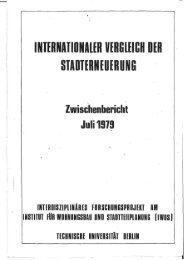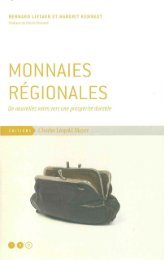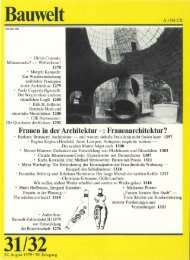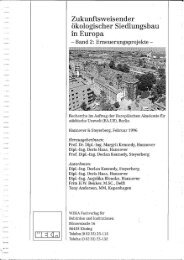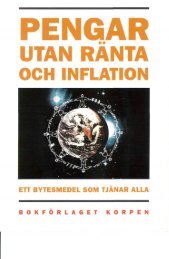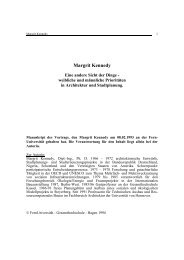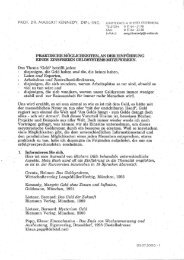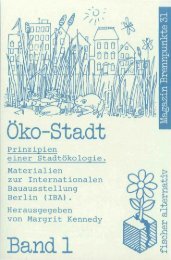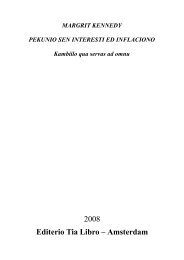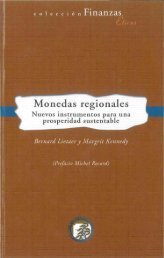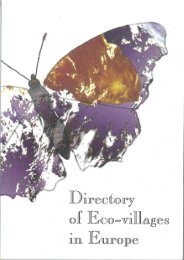BUILDING FOR SCHOOL AND COMMUNITY - Kennedy Bibliothek
BUILDING FOR SCHOOL AND COMMUNITY - Kennedy Bibliothek
BUILDING FOR SCHOOL AND COMMUNITY - Kennedy Bibliothek
You also want an ePaper? Increase the reach of your titles
YUMPU automatically turns print PDFs into web optimized ePapers that Google loves.
INTRODUCTION<br />
1. Co-ordination of school and community facilities means different<br />
things to different people. To some, it is economically justifiable to<br />
examine the overlaps between the different social services which the<br />
governments of various countries supply to their urban and rural communities,<br />
and to attempt to co-ordinate them and even physically combine<br />
them. To other people, co-ordination represents an improvement in the<br />
quality of the service itself. Certainly to the consumer, co-ordination<br />
makes life a lot easier.<br />
2. But co-ordination relates to other factors besides economic and administrative<br />
efficiency. It relates to the somewhat deeper social trend<br />
toward decentralization and local self-determination which is being witnessed<br />
in many countries throughout the world. The following paper is<br />
an attempt to address this aspect of co-ordination, and to describe some<br />
of the planning mechanisms, which have evolved in situations where it has<br />
occurred. .The paper should be read in particular relation to two others<br />
published in the present series: "From Individual Projects towards City-<br />
Wide Networks" by Margrit <strong>Kennedy</strong> in the present volume (page 25) and<br />
"Inter-Sectoral Issues" by Thierry Malan in Building for School and Community<br />
: I. Policies and Strategies, page 11.<br />
Technology versus Local Cultural Identity<br />
3. One of the by-products of twentieth century technology is universal<br />
culture. Machines, electric power, telecommunications and computers<br />
have blurred the historic contrasts between national cultures, as they<br />
have between cities and rural areas, and between neighborhoods within<br />
cities themselves. ' Traditional skills have been undermined by mass consumer<br />
production. Few families in the world still make their own clothes,<br />
houses, or tools, or sing the songs of their traditions, or tell folktales<br />
to their children, or even make their own bread.<br />
4. Technology has, of course, enormously increased the range of our<br />
choices. Any modern shopping center, with its air-conditioned mall<br />
145



